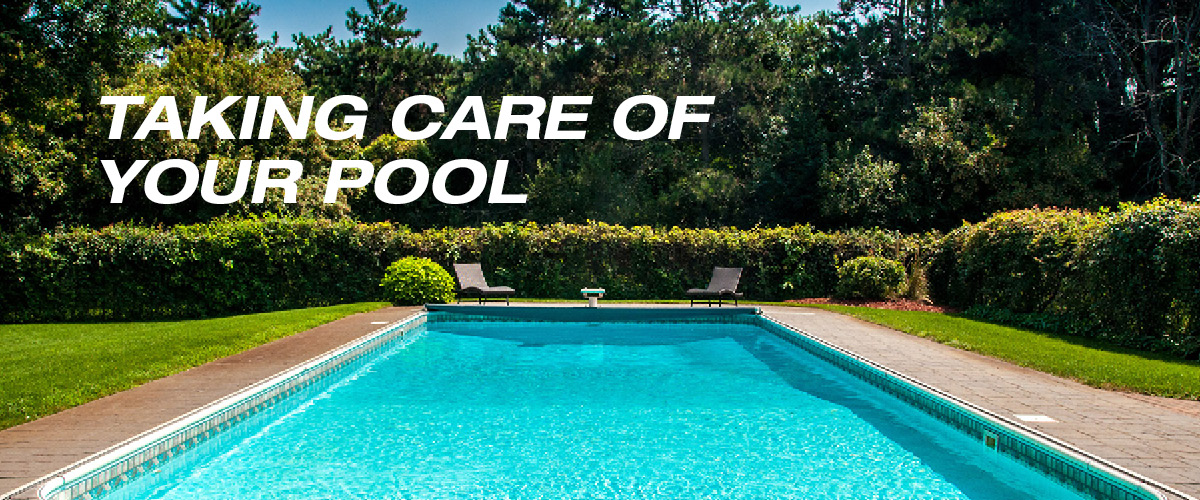
Celebrating Over 30 Years!
Schedule a Free Estimate

Taking Care of Your Pool
A pool is a thing of beauty. And keeping it that way is simple. Following our professional advice will help you prevent problems before they start and solve problems as they occur. Proper pool care can be a rewarding, enjoyable activity. Many people actually find it meditative and relaxing. But the best part is the end result. The satisfaction of having a clean and ready pool for you and your family’s full enjoyment.
Water Balancing
Keeping your pool properly balanced is one of your most important assignments as a pool owner.
Many things can throw the water out of balance. How often you use the pool, rain, sun, wind algae, dust debris, circulation, even which sanitizers you use. The source of fresh water (well, municipal, etc) will also affect water balance in a number of ways. Six factors need to be monitored for their effect on water balance:
- pH
- Total Alkalinity
- Calcium Hardness
- Total Dissolved Solids
- Temperature
- Canuric Acid
When all these factors are within acceptable ranges, it is unlikely that your water will cause corrosion or scale deposits. Well balanced water also provides maximum bather comfort.
pH
Understanding pH is one of the most important aspects of pool care. Low pH can lead to skin irritation and corrosion of equipment. High pH can result in cloudy water and contribute to scale formation. More importantly, the incorrect pH will reduce the effectiveness of the chlorine in your swimming pool. Remember to check the pH at least twice a week. The ideal range is between 7.2 and 7.6
Temperature
For the most part water temperature also has little effect on water balance. But when water temperatures stay over 90F, scale formation can develop rapidly. Prevention is the easiest solution – so test the water more frequently when it’s consistently that hot.
Calcium Hardness
All water contains some natural hardness, which will vary by geographic region and by source within a region. Calcium hardness (CH) refers to the calcium and magnesium content of the pool water. It is wise to test the CH levels regularly to prevent problems on the pool shell or in the circulation system. The recommended range for calcium hardness is 200 – 500 ppm (up to 1000 ppm is acceptable)
Pool water with a calcium level above 1,000 ppm may become cloudy and if left long enough will form scale on pool surfaces and fittings. CH below 200 ppm can corrode pool equipment. In plaster pools it may result in pitting or etching problems
Metals
The problem with a high metal level is the staining it causes on pool surfaces. Unwanted metals can be the result of unbalanced water.
- Source water can be a primary cause of unwanted metals
- Corrosive water can attract metals from exposed metallic surfaces such as ladders.
- Copper-based algaecides or make-up water can also attract unwanted metals.
You’ll be a lot more comfortable in the water, and your pool and equipment will be much better protected, if you maintain well-balanced pool water.

TNT Custom Gunite Pools
24 Sylvan Lane, Miller Place, NY 11764
Phone: 631.473.4202
info@tntgunitepools.com